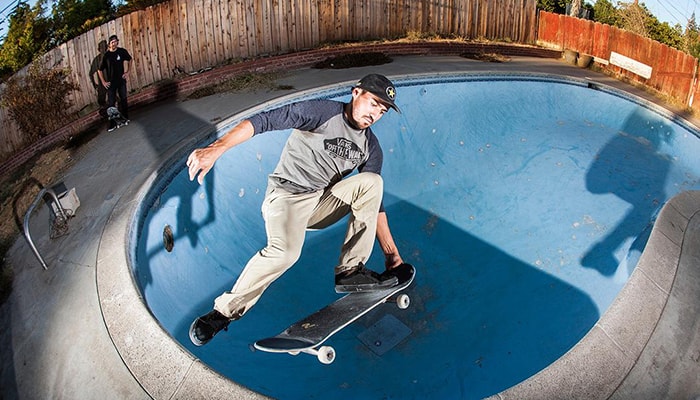BERRICS FILM SOCIETY — ‘You Were Never Really Here’ Review
WORDS: Alex Welch
The crime and revenge genres are populated with complicated protagonists, mostly men, who use their considerable strength and skills to commit shockingly brutal acts of murder on their own personal paths to justice. What these films very rarely ever depict or delve into, though, is the level of psychological trauma that someone would have to experience, in order to bring them to that point. Even more rarely, do those movies ever actually depict violence in a way that highlights the further emotional and psychological damage it is causing their protagonists. Instead, they choose to glorify it, both visually and stylistically, restricting the pain of the protagonists to its most purely surface level form.
You Were Never Really Here is not one of those films. Based on a short story by Jonathan Ames, director Lynne Ramsay’s latest flick is all about the torment of its protagonist. Another hulking man who, this time, comes in the form of Joe (Joaquin Phoenix), a veteran suffering from suicidal thoughts and PTSD, caused by both his time at war and the other many violent, traumatic moments he’s experienced throughout his life. Just some of which are revealed to the viewer in short, shocking bursts of flashbacks, like shards of glass constantly piercing into his every thought. But which have more importantly, turned him into a hired gun, who specializes in freeing underage girls from illegal sex trafficking rings, using a ball-peen hammer to violently dispatch with any of their captors or guards.

courtesy of You Were Never Really Here
That all comes to a head when Joe is offered another high-paying job, this time to find and rescue Nina (Ekaterina Samsonov), the young daughter of New York state senator, Albert Vatto (Alex Manette), who is reportedly being held in a secret house, which prostitutes underage girls. But as Joe’s attempt to rescue Nina leads to violent disaster for both himself and everyone he knows, the film forces him to come to terms with the fact that the little hold he thought he had on his life, was never really there in the first place, sending him on an emotional and mental downspin that only Nina, whose suffered through a fair share of her own pain and abuse, may be able to rescue him from.
Ramsay’s script for the film is tight and effective, using every single second of the film’s 89-minute runtime to its absolute fullest. But it’s in the visual and aural details that Ramsay succeeds most triumphantly. Before anything is ever actually seen in the film, Ramsay uses the sound design to bring us into Joe’s headspace, where we hear the sometimes broken up, harsh voices in his head, repeating the painful personal mantras that have defined his life, ever since he was a child. That’s followed up by a seemingly endless stream of close-ups on Joe and his possessions, as he cleans up any leftover mess from his most recent job.

courtesy of You Were Never Really Here
From there, Ramsay slowly unfolds the many existential layers of the piece, beginning with its striking title sequence, as Joe silently watches his taxi cab driver sing along to the radio, until the man looks like he is just speaking Joe’s thoughts out loud. There are dozens of these disorienting, dreamlike moments scattered throughout You Were Never Really Here, like when the smiles on a group of tourists’ faces transform into hysterical screams in Joe’s eyes, or how Ramsay illustrates his feeling of invisibility, by having him disappear from places through a series of quick cuts. None are perhaps quite as shocking or illustrative, though, as the moment when we see Joe live out his own personal suicide fantasy/nightmare.
Many of these unspoken moments hum with the same kind of nocturnal, lonely yearning that define You Were Never Really Here’s most obvious and greatest cinematic predecessor, Martin Scorsese’s Taxi Driver. A movie that also, uncoincidentally, shoots it’s goriest moments in as surgical and horrific a way as possible, in order to show just how unfulfilling these acts of violence actually are, for both Robert De Niro’s Travis Bickle and now, Phoenix’s Joe. Moreover, that’s a stylistic choice on Ramsay’s part that pays off wonderfully from the start of the film’s second half all the way to its conclusion, when the movie finds increasingly shocking, emotional ways to subvert standard revenge movie conventions and cliches, none of which I will reveal here.

courtesy of You Were Never Really Here
Because of all of this, You Were Never Really Here somehow lives up to the existential conflict that it’s title hints at. Joe is a man who feels defined by his pain, unable to ever escape it, and forced to find comfort in the self-destructive thoughts and exercises he commits himself to. That’s a lot to ask of any actor to try and engross themselves in.
Fortunately, Ramsay enlisted Joaquin Phoenix for the job, one of the most enigmatic and talented artists of his generation, someone capable of hitting home runs out of the challenging roles that his fellow contemporaries would likely shy away from. Phoenix bulked up quite a bit to play Joe, and Ramsay frames him as closely as she can, so that he usually, quite literally takes up most of the screen. But the real testament to You Were Never Really Here’s power, is how the duo are able to so effectively translate Joe’s unyielding pain and inner turmoil, until we are not seeing the film’s world through an objective point of view. It’s still Ramsay moving the camera, but it’s those emotions that are the lens through which we view everything that goes on inside of it.
SCORE: 4.75 bloody hammers out of 5
You Were Never Really Here is in limited theaters nationwide today.











